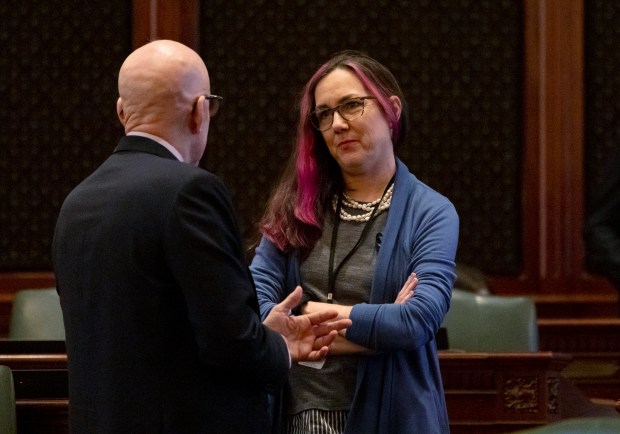In “Teen Torture, Inc.,” the three-part documentary on Max about abuses children and adolescents have survived at various boarding schools, boot camps and religious programs intended to curb rebellious behavior, a phrase comes up again and again: The troubled teen industry. It’s an industry.
That’s a chilling reality describing what author Evan Wright calls a “grab bag of all these different programs based on the idea that no matter what it takes, we’re gonna make these kids follow the rules because what they’re doing is so dangerous, it will destroy their lives.”
In many cases, he says, the abuse is the treatment.
Director Tara Malone talks to a handful of now-adult survivors who recall, in detail, their harrowing experiences. Alas, the seriousness of their stories is continually undermined by Malone’s stylistic choices, from the use of grainy dramatic recreations to a score that seems intended to emulate a horror movie. It’s entirely misjudged and suggests the documentary isn’t a Max (HBO) original, but something made for Discovery’s more sensationalist programming, which also (not incidentally) streams on Max. This blurring might be intentional. Either way, it detracts from the overall quality of the work.
The survivors deserve better than a documentary this shameless and crass.
Even so, they tell their stories with clear-headed disgust. The pain is still very close to the surface. One survivor says she was forcibly injected with Haldol when she refused to get out of bed one morning. Another survivor talks about being waterboarded as a 10-year-old. “What does that do to somebody?” he asks. “What does it do to everybody that watched that?”
Malone interviews experts besides Wright, but his insights are strongest, perhaps because he also had first-hand experience with these programs, which he details in “The Seed: A Memoir.” (As a journalist, Wright has written for Rolling Stone and Vanity Fair, and he is probably best known as the author of the 2004 non-fiction book “Generation Kill.”)
There are a thousand known troubled-teen programs operating across the country, he says. Some are run by large corporations. Some are small businesses that exist under the radar as far as state regulators are concerned. Employees are not necessarily licensed mental health or medical professionals. “You’re basically signing away custody (and therefore) that program has the right to make medical decisions for your kid,” says Maia Szalavitz, author of “Help at Any Cost.” But it’s not therapeutic, she adds: “‘Troubled teen’ is not a diagnosis.”
In many cases, when kids act out, they are working through untreated mental health issues, or are coming from homes where they are being abused or neglected. Behavior modification becomes the focus. If that sounds like an innocuous term, Wright pushes back: “The only difference between brainwashing and behavior modification is that if it’s done in a Chinese prison camp, we call it brainwashing. If it’s done in a rehab for teens, it’s called behavior modification. But it’s the same thing.”
All told, these programs affect somewhere in the neighborhood of a hundred thousand young people a year, at a cost of $30,000 to $60,000 per person. According to Wright, the programs are more profitable if they “fail” because “the longer the child is held there, the more money they make.”
The documentary allows survivors to recount their experiences with dignity, but it doesn’t go deeper. It doesn’t tell us about what relationships exist, if any, between the survivors and their parents. Or — with the exception of one woman seen briefly at home with her young child and partner — what their lives are like now.
They are, of course, entitled to privacy. But from a filmmaking perspective, Malone’s approach is so limiting that each person is reduced to the worst moment in their lives.
“Teen Torture, Inc.” — 2 stars (out of 4)
Where to watch: Max
Nina Metz is a Tribune critic.




